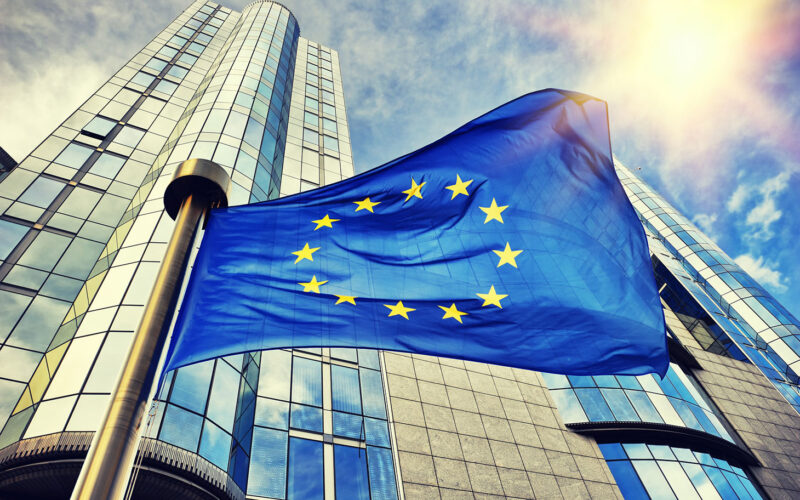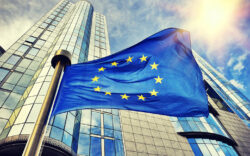In today’s issue:
- The nuclear renaissance is gathering pace
- Europe voted in favour of nuclear power
- Even the Germans will give in, soon
What should investors make of the European Parliament election results? European stocks and bonds are stumbling. But I can already smell the radioactive profits around the corner…
The crucial result for investors was not the rise of “far right” parties. Although that story is being badly underestimated by the media.
Germany’s AfD was kicked out of its parliamentary group before the elections. And so it looks like their former group only made modest gains. When the reality is very different.
But the real story was the decline of various green parties. The French Greens, for example, were left with their worst result in 30 years. The German Greens were the biggest losers. In terms of the election results, I mean.
What’s going on here?
It’s a rejection of the energy transition to net zero
Whether voters are rejecting the idea, the mechanisms used, or the impacts green policies are causing is an interesting question.
Did Europeans stop believing in climate change? Did they realise that cutting emissions requires imposing some rather harsh and expensive policies? Are they sick of the measures that have been imposed already?
To be honest, I don’t know. And if you’re trying to profit from the election, it doesn’t really matter. Because there is now only one way left for carbon-obsessed policymakers to turn.
With the help of members in The Fleet Street Letter’s Global Intelligence Network, I predicted a nuclear power renaissance back in January 2022:
Nuclear is unavoidable in a world focused on emissions and energy security
Energy, a bit like investing, is a game of alternatives. Even if you don’t like any of the options, you still have to choose the least bad option that actually works.
Europe’s attempt to deny this in 2022 resulted in economic shutdowns, energy rationing, blackouts and more. But, in the end, the energy system is there to feed the economy’s demand, and the economy is not there to tide over the energy system’s shortcomings. At some point, serious energy supply must be brought online.
The electrification of many of our fossil fuel using industries and behaviours also means that electricity demand is going to boom. The International Energy Agency estimates nuclear generation needs to double by 2050 to hit net zero targets. Transitioning the economy to electricity to minimise emissions, while starving it of electricity over emissions concerns, is not going to work.
Given the underlying challenges of our long list of potential sources of power which we can choose from, we can safely say that nuclear will have to be part of our energy mix in the future. It is the second safest, second cleanest form. It takes up a tiny fraction of the space needed by other potential energy sources. Nuclear also has the highest capacity factor – the amount of energy actually created relative to how much it is capable of creating. Other forms of energy have significant downtime, in other words.
Nuclear fuel is found in geopolitically safer jurisdictions like Australia, it can be stored and stockpiled economically to prevent shortfalls, and it does not pollute the environment like oil.
Energy analysts and consultants Doomberg, not usually ones to make a point in dramatic fashion, put it like this:
There is simply no path to a low carbon economy without a massive nuclear power renaissance. If you are simultaneously opposed to fossil fuels and nuclear power, you are for mass starvation and extreme human suffering (whether you realize it or not).
So, the people and the economic reality of nuclear power have shifted in its favour. Now, even governments around the world are finally waking up to the need for nuclear power. This has triggered a radical shift in the demand curve for nuclear technology, hardware, fuel and infrastructure.
The letter went on to analyse that popular support for nuclear had tipped into positive territory in a long list of places, including the UK.
That’s all well and good. But for popular opinion to convince a politician you need an election. Which is a bit odd, really. You’d think the fear of getting fired would change their mind about unpopular policies. And yet, rather a lot of politicians get fired all the time.
Imagine if the rest of us were that bad at our jobs.
Then again, there may be something else at work. The upcoming issue of The Fleet Street Letter is about precisely that. Who really controls UK politics?
Anyway, the European elections have delivered a resounding vote in favour of nuclear power. And it’s not the only election that’s done the same.
Nuclear power goes populist
In the Netherlands, the new coalition government has already announced at least four new nuclear power stations.
The opportunity is so good that the Dutch government is even considering buying a share in the only existing nuclear power plant, if its life is extended.
In France, the European election results were so bad for the government that it triggered a national election. The party that won the European elections by a margin of 2-1 over the nearest two alternatives is pro nuclear too. Euractiv summarised its policy like this in 2022: “Le Pen’s climate programme: pro-nuclear and pro-hydrogen, but anti-wind.”
In Belgium, the ruling party lost the EU, national and regional elections in one go. Two right-wing parties came first and second. The more moderate one opposed getting rid of nuclear power for years. But two plants were shut down. Now the election winning right-wing parties argue for bringing back a variety of nuclear plants and technologies.
Poland is working on introducing nuclear power. Hungary is singing international deals to expand its nuclear power. The list goes on.
Germany risks being encircled by nuclear reactors. And they’ll be run by countries that Germans consider to be less tech savvy than themselves…
But even that could change. The conservative party that phased out nuclear may bring it back now that they’re dominating German political polls.
To sum it up, the nuclear renaissance is now in full swing. And that’s the most important lesson investors can learn from the European Parliament elections.
The question is, how could you profit?
Until next time,

Nick Hubble
Editor, Fortune & Freedom



